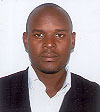Rwanda aspires to become a knowledge-based economy. Key questions; what is a knowledge economy vis-à-vis knowledge-based economy? Why such an economy? And how do we move from where we are to where we want to be in the shortest possible time? It may seem like semantics but it is worth exploring. The essential difference is that in a knowledge economy, knowledge is a product, while in a knowledge-based economy, knowledge is a tool.


Rwanda aspires to become a knowledge-based economy. Key questions; what is a knowledge economy vis-à-vis knowledge-based economy? Why such an economy? And how do we move from where we are to where we want to be in the shortest possible time?
It may seem like semantics but it is worth exploring. The essential difference is that in a knowledge economy, knowledge is a product, while in a knowledge-based economy, knowledge is a tool.
As Michael Porter of Harvard Business School asserts, today’s economy is far more dynamic and that comparative advantage is less relevant than competitive advantage (making more productive use of inputs, which requires continual innovation).
The good thing in Rwanda today is that there are so many of us who are in pursuit of knowledge, if the number of people going back to evening classes after work is anything to go by. But the key question is; what kind of knowledge do we need? Knowledge is classified in many ways, but for our purposes we will categorize them as procedural knowledge and declarative knowledge. Procedural knowledge, also known as imperative knowledge, is the knowledge exercised in the performance of some task. It can be directly applied to a task. On the other hand declarative knowledge is that that one possesses about problem solving.
Take a car, for example, declarative knowledge would be about various ways of car maintenance and reasons why they are important but procedural knowledge would be about you go about each step in servicing the car, for example. As such procedural knowledge is what we call practical and declarative knowledge is more theoretical.
In Rwanda, as in many countries, procedural knowledge is offered under vocational education and training. It is sometimes referred to as technical education as the trainee directly develops expertise in a particular group of techniques or technology. This is done under the TVET (Technical and Vocational Education and Training) programme.
The paradox is that, in Rwanda today, we all want University degrees (declarative knowledge) while the market demands more middle level technical skills across board (procedural knowledge). We all want to be managers but there is no technical staff to manage!
The solution perhaps would be to combine these two classes of knowledge? Make procedural knowledge part of the degree programs. Employers could then pass the new graduates through technical level jobs on their way up the promotion ladder! If you combine this with internship programs we will have the right skill set. A better manager is one who is equipped with technical skills and can do the job. Besides, don’t all who teach engineering, medicine, e.t.c. actually practice the same?
A caveat: This does not apply to those of us who go to institutions of higher learning for the papers, certificates that they cannot competently defend. This column is not them.
Sam Kebongo teaches entrepreneurship at Rwanda Tourism University College. He also is a Director at Serian Ltd that provides skills and business advisory services consultancy.
sam.kebongo@gmail.com


